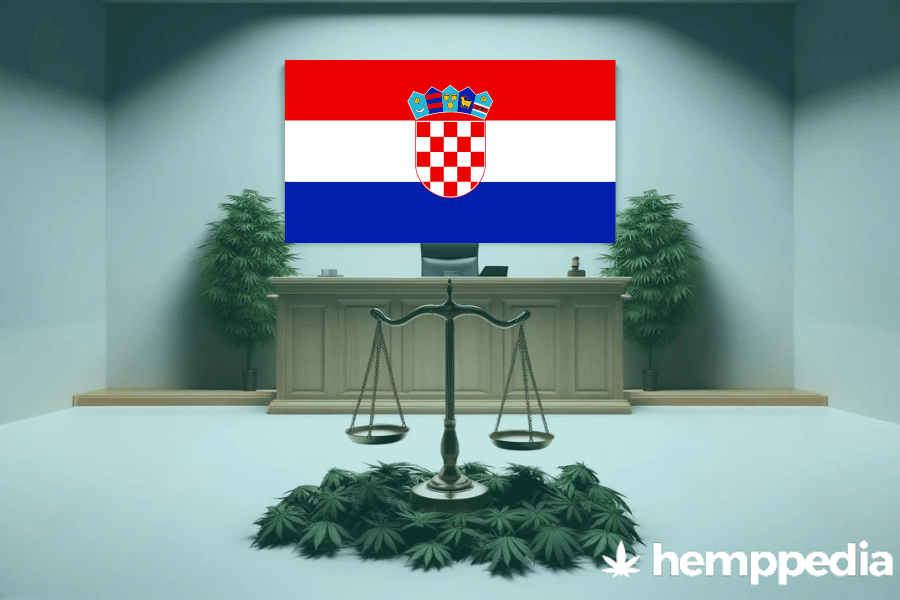TL;DR
The use and sale of Cannabidiol (CBD) in Croatia is legal. However, products must conform to strict limits on Tetrahydrocannabinol (THC) content and must be derived from hemp, rather than marijuana. This brief guide will explore the legalities, restrictions, and historical context of CBD in Croatia, as well as comparing this to the global context.
Overview of CBD Legislation
Defining Key Terms
CBD is non-psychoactive chemical compound derived from the cannabis plant. Unlike THC, it does not produce a ‘high’. It is deemed to have various potential therapeutic uses. The cannabis plant comes in two primary types – hemp and marijuana. CBD is typically derived from hemp, which has high CBD and low THC content.
Full-spectrum CBD products contain all the natural compounds found in hemp, including trace amounts of THC. Conversely, CBD isolate is a pure, isolated form of CBD, with no other cannabis compounds present.
Legal Landscape
While the possession and sale of marijuana is illegal in Croatia, CBD derived from industrial hemp is legal. The THC content must be 0.2% or less for the product to be considered legal.
Regulatory Bodies
The legal status and regulation of CBD falls under the jurisdiction of the Ministry of Health in Croatia. They oversee the legality, controls on manufacture, and sales of CBD products.
Conditions and Restrictions
As already mentioned, CBD products need to contain 0.2% or less THC. They must also come from EU-approved industrial hemp strains, and not from marijuana. There are no restrictions on the types of CBD products which can be sold, whether oils, topicals, or edibles.
Historical Context
Croatia has a relatively relaxed history with CBD and hemp, compared to the rest of the world. Since the nineteenth century, the cultivation of hemp has been an agroindustrial tradition in parts of Croatia.
Possession, Use, Cultivation and Sales
Legally, there are no restrictions on the possession, use, or sale of CBD products that fit the criteria outlined above. As for cultivation, only EU-approved hemp strains can be grown, and a license must be obtained. The selling of CBD products is allowed both in stores and online.
Importing and exporting are allowed with proper certifications and licenses and provided that the products adhere to the THC content stipulation.
Enforcement and Penalties
Non-compliance with Croatian CBD laws, such as exceeding the THC limit or cultivating non-approved strains, can result in fines or criminal charges. There has been a known case of a farmer being fined for growing non-approved hemp strains.
Comparative Analysis
Compared to other countries in the EU, Croatian regulations on CBD are generally more tolerant. While many other European countries have stricter controls on sales and cultivation, in Croatia, these are more relaxed, although always within the bounds of overarching EU regulations.
Conclusion
In conclusion, CBD is legal in Croatia, providing it fulfills certain criteria. It is overseen by the Ministry of Health, and users, growers, and sellers need to be aware of specific limitations and regulations to stay on the right side of the law.





